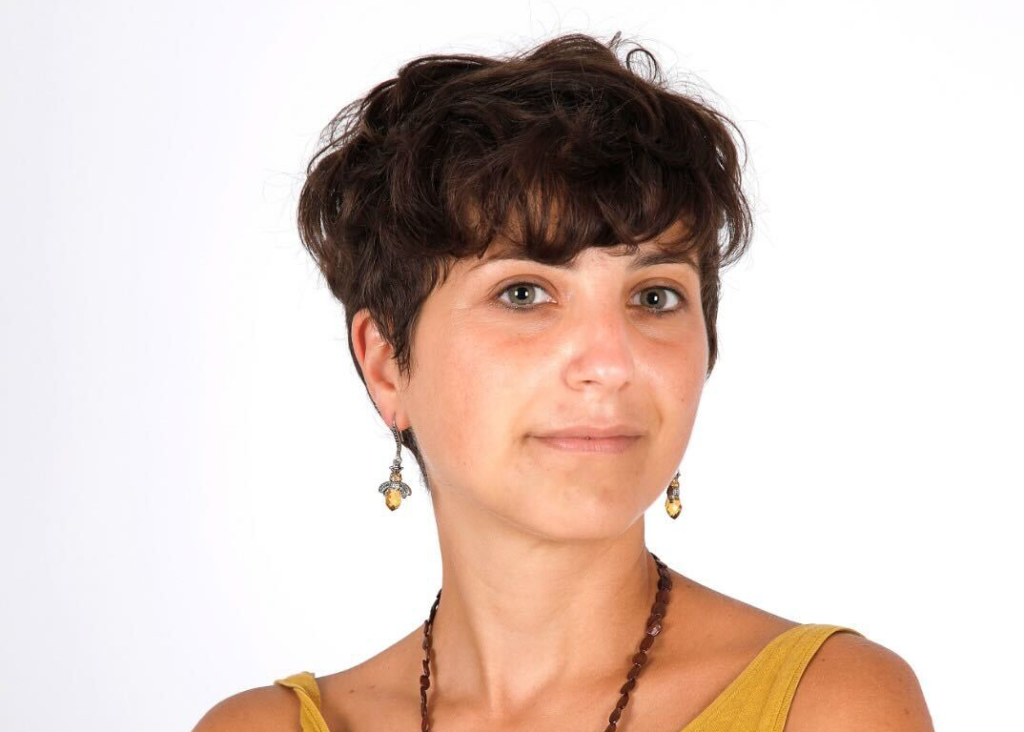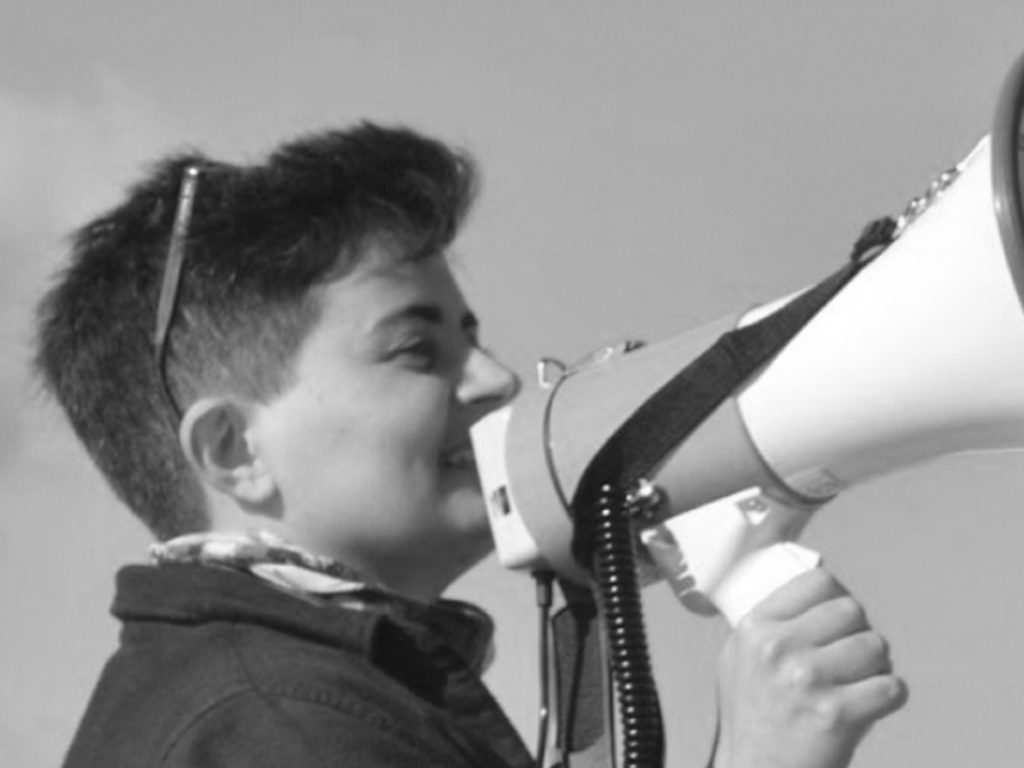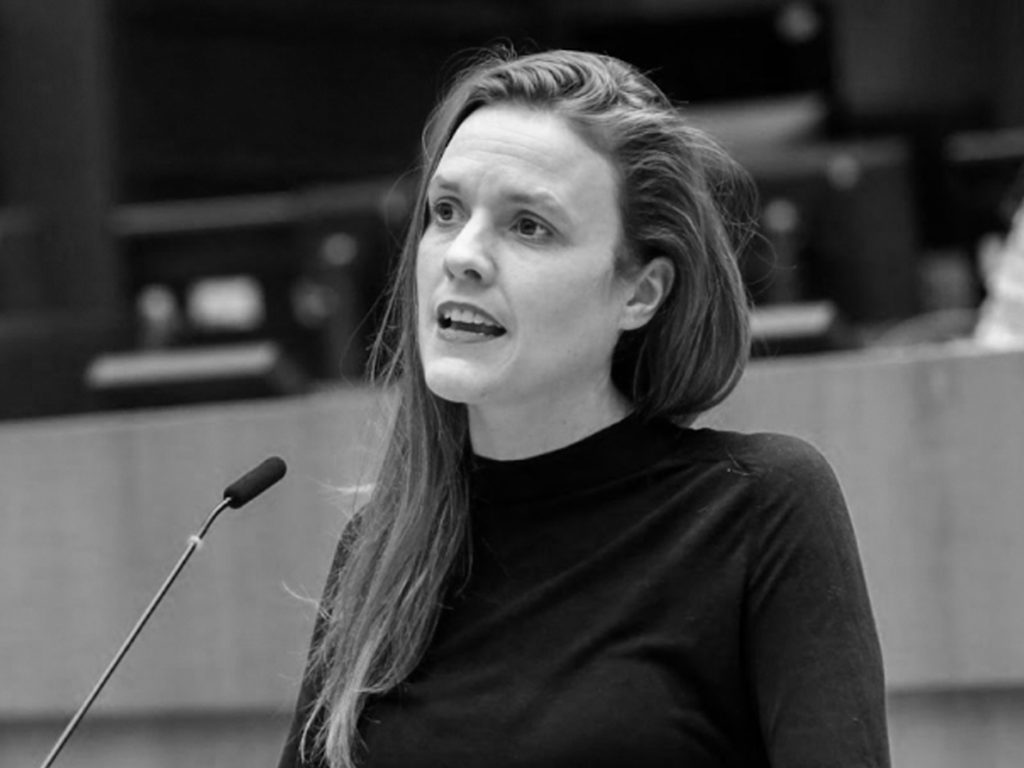Die Welt steht in Flammen. Eine globale Pandemie wütet. Die Wirtschaft läuft auf Sparflamme. Es gibt keine Jobs. Junge Menschen können es sich nicht leisten, aus dem Haus ihrer Eltern auszuziehen oder allein zu leben. Nachrichten zu lesen ist deprimierend. Es ist kein Wunder, dass sich die mentalen Probleme junger Menschen (15- bis 24-Jährige) in nur einem Jahr verdoppelt haben. Drei unserer Grünen/EFA-Praktikant*innen – Marco, Carolina und Timothy, junge Menschen aus der ganzen EU – erzählen uns, wie sie von Arbeitslosigkeit, der Wohnungskrise und dem Klimawandel betroffen sind und welche Auswirkungen das auf ihre eigene psychische Gesundheit hat.
Neben COVID-19 gibt es seit Anfang 2020 eine weitere, unsichtbare Pandemie, die den Globus erfasst hat. Die Rede ist von der Krise der mentalen Gesundheit von jungen Menschen. Einem Bericht der OECD (Organisation für wirtschaftliche Zusammenarbeit und Entwicklung) zufolge ist die Wahrscheinlichkeit, dass junge Menschen an Depressionen oder Angstzuständen leiden, seit Beginn der Pandemie um 30 bis 80 % gestiegen.
Die Ursachen für psychische Probleme bei jungen Menschen sind vielfältig. Und natürlich hat jeder junge Mensch seine eigenen persönlichen Belastungen. Es ist jedoch klar, dass unsere Generation mit einigen großen gemeinsamen Problemen zu kämpfen hat. Wir werfen einen genaueren Blick auf drei Themen, mit denen junge Menschen in Europa konfrontiert sind – die Klimakrise, Arbeitslosigkeit und Wohnungsnot – und fragen: Wie sieht es aus, wenn man als junger Mensch in der EU mit diesen Problemen konfrontiert ist? Und wie können wir unsere psychische Gesundheit schützen?
Während du liest, kannst du dir unsere Playlist zur mentalen Gesundheit anhören. Du kannst auch gerne ein bisschen mit uns über unsere gemeinsamen Probleme tanzen!
WOHNUNGSNOT: WIE WIRKT SIE SICH AUF DIE PSYCHISCHE GESUNDHEIT VON JUNGEN MENSCHEN AUS?
Carolina aus Madrid, Spanien
Carolina ist 23 Jahre alt. Sie hat uns erzählt, wie sich die Wohnungsnot auf unsere Generation auswirkt und wie sie glaubt, dass sie die psychische Gesundheit von jungen Menschen beeinträchtigt.
Wie wirkt sich die Wohnungskrise in Europa auf junge Menschen aus?
Eine Wohnung zu finden ist viel schwieriger als früher – vor allem für junge Menschen. Während unsere Eltern oder Großeltern in unserem Alter wahrscheinlich schon einen Job und ein Haus hatten, schaffen wir es kaum, jeden Monat die Miete zu bezahlen.
Ich habe das Glück, bereits in vier Ländern gelebt zu haben: Spanien, Frankreich, Belgien und dem Vereinigten Königreich. In allen Ländern habe ich gesehen, wie meine Freunde unter dem Stress und der Ungewissheit litten, nicht zu wissen, wo sie im nächsten Monat wohnen würden. Ob sie etwas zu einem erschwinglichen Preis finden würden oder ob sie ihre Sachen abholen und wieder nach Hause fahren müssten.
Hohe Preise und ein sich schnell verändernder Wohnungsmarkt machen es zu einem echten Kampf, eine günstige Wohnung zu finden. Oft gibt es so viele Anforderungen, bevor du einen Vertrag unterschreiben kannst: einen Arbeitsvertrag vorweisen, einen Bürgen finden, für eine Kaution sparen. Das ist eine Hürde, die viele junge Leute einfach nicht überwinden können. In Lyon habe ich in einer privaten Unterkunft für Studenten gewohnt. Trotzdem verlangten sie von mir einen Gehaltsnachweis meiner Eltern für die letzten zwei Jahre und zwei Bürgen, obwohl ich Studentin mit einem Erasmus-Stipendium war.
Warum gestaltet sich die Wohnungssuche in europäischen Städten so schwierig?
In Spanien habe ich auch gesehen, wie unterschiedlich die Lebensbedingungen in Großstädten wie Barcelona und Madrid sind. Die durchschnittliche Monatsmiete in diesen beiden Städten ist 82 % teurer als im Rest des Landes. Meine Freunde, die aus anderen Städten nach Madrid kommen, haben es kaum geschafft, ein Zimmer zu einem erschwinglichen Preis zu finden, während sie auch noch für ihre Ausbildung bezahlen müssen.
Selbst die Glücklichen, die es sich leisten können, Miete zu zahlen, müssen mehr als 50 % ihres Lohns für die Unterkunft aufwenden. Das macht es schwierig, über die Runden zu kommen. Unbezahlte Praktika oder niedrige Löhne zusammen mit den hohen Mietkosten in den meisten europäischen Ländern machen es zu einem Teufelskreis.
Junge Menschen sitzen in der Falle: Wir sind nicht in der Lage, selbst einen Mietvertrag zu unterschreiben, können uns die Miete nicht leisten und sind nicht in der Lage, für eine eigene Wohnung zu sparen.
Wie wäre es mit einer Wohngemeinschaft? Ist das die Zukunft des Wohnens für junge Menschen?
Eine Wohnung mit fünf anderen Menschen zu teilen ist für Menschen mit Mitte 20 oder 30 normal geworden. In Städten wie Madrid, Barcelona, Paris, Amsterdam oder Brüssel liegt die durchschnittliche Monatsmiete für eine Wohnung bei 1000 €, während der Durchschnittslohn für junge Menschen in Spanien oder Italien bei 1200 € liegt. Es ist klar – diese Rechnung geht nicht auf. Die einzige Möglichkeit, unabhängig zu werden, ist eine Wohngemeinschaft.
Das Teilen einer Wohnung wird oft als „bereichernde Erfahrung” oder „Leben in einem multikulturellen Umfeld” bezeichnet. Und oft wird es auch als Zusammenwohnen bezeichnet. Mit dieser Formulierung wird versucht, die sehr prekäre Situation, in der sich so viele junge Menschen in ganz Europa befinden, zu romantisieren. Das Zusammenleben mit Fremden ist keine coole persönliche Vorliebe – es ist unsere einzige Option.
Was hat die Wohnungskrise mit mentaler Gesundheit zu tun?
Die Kosten für die Miete, die Angst, keine Wohnung zu finden oder auf die finanzielle Unterstützung der Eltern angewiesen zu sein, sind Ängste, die viele junge Menschen in ganz Europa teilen.
Die Ungewissheit macht es für junge Menschen fast unmöglich, ohne einen festen Job überhaupt daran zu denken, Kinder zu bekommen oder ein Haus zu kaufen. Sie verändert unsere wichtigsten Lebensentscheidungen. Sie kann dazu führen, dass wir uns gefangen und wertlos fühlen. Diese Unsicherheit über die Zukunft erzeugt ständigen Stress und die Sorge, was als Nächstes passieren wird.
Ich würde mir eine EU-Strategie für psychische Gesundheit wünschen. Wir brauchen einen europaweiten Ansatz für die psychische Gesundheit. Egal, wo in Europa du herkommst, mentale Gesundheitsdienste sind für uns alle erschwinglich und zugänglich. Und natürlich müssen wir den Zugang zu bezahlbaren Wohnungen für alle sicherstellen.
ARBEITSLOSIGKEIT: WIE WIRKT SIE SICH AUF DIE PSYCHISCHE GESUNDHEIT VON JUNGEN MENSCHEN AUS?
Marco aus Mailand, Italien
Marco ist 26 Jahre alt. Er hat uns erzählt, wie sich die Arbeitslosigkeit auf seine Psyche ausgewirkt hat und wie sie sich auf die mentale Gesundheit von jungen Menschen im Allgemeinen auswirkt.
Marco, wie hat es sich angefühlt, während der Pandemie arbeitslos zu sein?
Ich war 24 Jahre alt, als ich von Kopenhagen nach Brüssel zog, in der Hoffnung, bald ins Arbeitsleben einsteigen zu können.
Nach den ersten Tagen wurde mir klar, dass die Konkurrenz um einen bezahlten Praktikumsplatz in meinem Interessengebiet (Internationale Beziehungen und Zusammenarbeit) sehr groß war. Der Stellenmarkt war gesättigt. Ich versuchte, einen Job in einer Bar, einem Restaurant oder einem Laden zu finden, um meine Rechnungen bezahlen zu können. Aber leider machte alles innerhalb von zwei Wochen dicht.
Also schraubte ich meine Erwartungen herunter und hoffte einfach, so schnell wie möglich irgendeine Einnahmequelle zu finden. Ich durchlief eine scheinbar unendliche Reihe von Bewerbungsprozessen und bekam nur Ablehnungen zurück. Sie begannen immer mit: „Obwohl Ihr Profil sehr gut zu dieser Stelle passt, haben wir uns in diesem Fall entschieden, Ihre Bewerbung nicht weiter zu bearbeiten”. Oder: „Ich schreibe Ihnen, um Ihnen mitzuteilen, dass Sie nicht für ein Vorstellungsgespräch ausgewählt wurden, aber wir sind uns sicher, dass Sie aufgrund Ihres hervorragenden Profils in Zukunft etwas anderes finden werden!”. Aber mein Profil allein reichte nicht aus. Ich brauchte Arbeitserfahrung, bevor ich ein Praktikum bekommen konnte.
Ich verbrachte Monate in einer prekären Situation, sowohl mental als auch finanziell. Die COVID-Beschränkungen und der Lockdown hatten weitere negative Auswirkungen auf meinen Tagesablauf. Nach sechs Monaten hatte ich fast ein Burnout erreicht. Schließlich war ich gezwungen, für ein paar Monate zurück nach Italien zu gehen, was meine Lage noch verschlimmerte. Ich dachte, ich hätte den Kampf um einen Job verloren.
Wie haben sich die COVID-19-Pandemie und die Arbeitslosigkeit auf junge Menschen ausgewirkt?
Am Ende entschied ich mich, einen bezahlten Job aufzugeben und ein unbezahltes Praktikum zu machen, um meinen Lebenslauf aufzubessern (was auch gelang) und um wenigstens das Gefühl zu haben, etwas zu tun.
Ich hatte das Glück, dass meine Familie mich auf die eine oder andere Weise unterstützen konnte. Aber trotz der verschiedenen Teilzeitjobs, die ich nebenher hatte, war ich immer auf jemanden angewiesen. Mehr als einmal hatte ich das Gefühl, dass mir meine Würde geraubt wurde. Dieses Gefühl der Unzulänglichkeit ließ mich an meinen Fähigkeiten zweifeln, meine Entscheidungen in Frage zu stellen und das Vertrauen in das Beschäftigungssystem verlieren.
Hast du in den letzten zwei Jahren eine ähnliche Erfahrung gemacht? Du bist nicht allein.
Einer Studie von Eurostat zufolge gab es im Jahr 2020 fast 14 Millionen junge Erwachsene (im Alter von 20 bis 34 Jahren), die weder erwerbstätig waren noch eine Ausbildung absolvierten.
Neueste Erkenntnisse zu Arbeitslosigkeit und mentaler Gesundheit junger Menschen
Eine aktuelle Studie des Europäischen Parlaments hat gezeigt, dass junge Menschen in Bezug auf Beschäftigung und psychische Gesundheit besonders stark von der COVID-19-Krise betroffen sind.
Das hat die Studie zu Jugend, Arbeitslosigkeit und mentaler Gesundheit herausgefunden:
- Die Pandemie hat das Gastgewerbe am stärksten getroffen, in dem viele Studierende beschäftigt sind, die es sich nicht leisten können, ihre einzige Einkommensquelle zu verlieren.
- Viele Arbeitgeber*innen zögern, junge Menschen einzustellen, weil ihnen die Erfahrung fehlt, aber wir können keine Erfahrung sammeln, ohne einen Job zu bekommen. Das schafft eine unmögliche Situation für junge Menschen, die versuchen, nach ihrer Ausbildung Arbeit zu finden.
- Junge Menschen unterschreiben häufiger befristete Verträge, die während der COVID-19-Pandemie als erste gekündigt wurden und somit am prekärsten sind.
Was wird getan, um Arbeitslosigkeit und psychische Gesundheit junger Menschen in der EU zu bekämpfen?
2022 ist das Europäische Jahr der Jugend, das die Bedeutung der europäischen Jugend ins Rampenlicht rücken soll. Die EU-Mitgliedstaaten haben ihre Investitionspläne vorgelegt, um den allgemeinen Lebensstandard junger Menschen in der Europäischen Union nach der COVID-19-Pandemie zu verbessern.
Kim Van Sparrentak, eine der jüngsten Europaabgeordneten der Grünen/EFA, hat das Thema im vergangenen Februar mit einer brillanten Rede in der Debatte des Europäischen Parlaments „Eine Jugend, ein Europa” angesprochen.
Die Grünen/EFA-Fraktion arbeitet Hand in Hand mit der FYEG (Vereinigung Junger Europäischer Grüner). Gemeinsam setzen wir uns für ein Verbot von unbezahlten Praktika und für einen Mindeststandard an Rechten für die Arbeitsbedingungen junger Menschen ein.
Für mich wäre das der erste praktische Schritt, um eine Lücke zu schließen, die zu viele junge Menschen durchlaufen müssen, bevor sie ein anständiges, menschenwürdiges Einkommen erzielen und ihren Übergang ins Erwachsenenleben beginnen können.
KLIMAANGST: WIE WIRKT SICH DER KLIMAWANDEL AUF DIE MENTALE GESUNDHEIT VON JUNGEN MENSCHEN AUS?
Timothy aus Trier, Deutschland
Timothy ist 26 Jahre alt und hat die schottische und deutsche Staatsangehörigkeit. Gemeinsam haben wir darüber gesprochen, wie sich der Klimawandel auf die psychische Gesundheit junger Menschen auswirkt und ihre Ängste schürt.
Was genau ist Klimaangst?
Klimaangst ist eine Form der psychischen Belastung durch die Bedrohung, die von der Klimakrise ausgeht. Sie ist ein relativ neues Phänomen, aber ihre Auswirkungen sind weit verbreitet. Eine aktuelle Studie aus Deutschland hat gezeigt, dass 55 % der jungen Menschen über die Auswirkungen des Klimawandels auf ihr Wohlbefinden besorgt sind.
Als junge Menschen neigen wir dazu, die Klimaangst intensiver zu erleben, da wir die Generation sind, die die Folgen der Erderwärmung tragen wird. Die Klimaangst von jungen Menschen wird oft auf ein Gefühl der Machtlosigkeit zurückgeführt, das entsteht, wenn Regierungen zu wenig tun, um den Klimawandel aufzuhalten.
Wir haben jetzt eine Phase erreicht, in der wir die Folgen des Klimawandels direkt vor unseren Augen sehen. Viele von uns haben Naturkatastrophen wie Waldbrände, Dürren und Überschwemmungen miterlebt oder waren sogar selbst davon betroffen. Wir haben das Gefühl, dass der Klimawandel unausweichlich ist. Es wird zu wenig und zu spät getan. Bei jungen Menschen hat die Angst vor dem Klimawandel stark zugenommen, weil sie um ihre eigene Zukunft und die des Planeten fürchten.
Diese Angst wird auch durch den jüngsten IPCC-Bericht (Weltklimarat) geschürt, der uns verdeutlicht, dass die Klimakatastrophen noch schlimmer werden, wenn die Regierungen nicht sofort handeln. Tatenlosigkeit beim Klimawandel bedeutet Tatenlosigkeit beim Schutz der psychischen Gesundheit von jungen Menschen.
Timothy, kannst du uns sagen, was Klimaangst für dich bedeutet?
Klimaangst ist für mich eine sehr persönliche Erfahrung. Letztes Jahr wurde ich Zeuge der verheerenden Überschwemmungen in der Nähe meiner Heimatstadt Trier, Rheinland-Pfalz. Mehr als 200 Menschen in Europa verloren ihr Leben durch die Fluten.
Ich erinnere mich noch gut an die Erlebnisse in diesem Sommer. Ich fühlte mich traurig und machtlos, als ich die Nachrichten sah. Es war dasselbe Gefühl der Hilflosigkeit, das ich während des Höhepunkts der COVID-19-Pandemie erlebte. Nur dass die Katastrophe dieses Mal so nah an meinem Zuhause war.
Heute befürchte ich, dass sich solche Ereignisse immer wiederholen werden. Das ist eine traurige Realität. Vor allem, weil sich Klimaangst nicht wie etwas anfühlt, mit dem sich junge Menschen beschäftigen sollten. Als junger Mensch sollte ich mir keine Sorgen über die Ignoranz und Untätigkeit von Regierungen im Kampf gegen den Klimawandel machen müssen. Die Klimaangst ist eine unnötige Last auf den Schultern junger Menschen.
Was können wir gegen die Klimaangst tun?
Zum einen brauchen wir unbedingt mehr erschwingliche und zugängliche Gesundheitsdienste für Menschen mit mentalen Problemen.
Wenn die Regierungen wirklich zeigen wollen, dass sie die Klimaangst ernst nehmen, dann sollten sie alles in ihrer Macht stehende tun, um die psychische Gesundheitsversorgung zu verbessern. Dazu gehört auch, dass mehr Mittel für die Erforschung von mentalen Problemen bereitgestellt werden.
Zum Glück habe ich festgestellt, dass unsere Generation trotz aller Hindernisse widerstandsfähig ist. Nach zweijähriger Abwesenheit haben wir alle miterlebt, wie Klimaaktivisten für den ersten globalen Klimastreik seit der Pandemie auf die Straße gegangen sind.
Ich habe für mich selbst herausgefunden, dass die Teilnahme an einer Kundgebung mich die vielen negativen Gefühle überwinden lässt, die ich mit dem Klimawandel verbinde. Ich fühle mich gestärkt und habe das Gefühl, dazuzugehören, weil ich sehe, dass meine Generation diesen Kampf gemeinsam führt. Das hilft mir wirklich, mich ein bisschen zu beruhigen.
Letztendlich können wir die Klimaangst als eine der Ursachen für psychische Probleme aber nur beseitigen, wenn wir den Klimawandel eindämmen. Wir brauchen klare Klimaschutzmaßnahmen und zwar jetzt. (Lies nach, wie die Grünen/EFA auf Klimamaßnahmen in der EU gedrängt haben).
Wir müssen den Druck aufrechterhalten. Unser mächtigstes Instrument, um Entscheidungsträger*innen zur Rechenschaft zu ziehen, ist es, den Kampf für Klimagerechtigkeit auf die Straße zu tragen. Wir müssen von Politikerinnen und Politikern verlangen, dass sie jetzt handeln – nicht nur um unserer geistigen Gesundheit willen, sondern für eine lebenswerte Zukunft auf unserem schönen Planeten.
UND WIE GEHT ES NUN WEITER?
Die meisten von uns werden irgendwann in ihrem Leben ein mentales Problem haben. Jeder junge Mensch, der Therapie benötigt, hat unabhängig von seiner finanziellen Situation das Recht auf Zugang zu angemessenen Therapieangeboten.
Wir brauchen eine EU-Strategie für psychische Gesundheit. Wir brauchen psychische Gesundheitsdienste, die erschwinglich und für alle zugänglich sind. Vor allem für die Bedürftigsten, für Migrant*innen und für alle, die Schutz benötigen.
Um die Krise der mentalen Gesundheit junger Menschen zu lösen, brauchen wir:
Uns ist klar, dass es keine schnellen Lösungen für große Probleme wie Arbeitslosigkeit, Wohnungsnot und die Klimakrise gibt. Doch unsere Geschichten zeigen, dass die Sorgen junger Menschen um ihre mentale Gesundheit ernst genommen werden sollten. Wir haben genug von der COVID-19-Pandemie. Und wir haben genug von der Pandemie der psychischen Gesundheit.
Europa befindet sich jetzt eindeutig an einem Scheideweg. Entweder ignorieren die EU-Regierungen weiterhin die Ursachen für die psychische Gesundheit oder sie beginnen zu handeln. Wir hoffen, dass unsere Geschichten ihnen einen Denkanstoß gegeben haben.
Und jetzt seid ihr dran!
Wie geht es eurer mentalen Gesundheit seit Beginn der Pandemie? Beeinflusst der Klimawandel auch eure mentale Gesundheit?
Wir würden uns freuen, wenn ihr euch mit uns unter diesem Instagram Post austauscht. Wir warten in den Kommentaren auf euch – wir sehen uns also dort!























